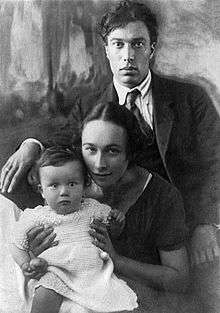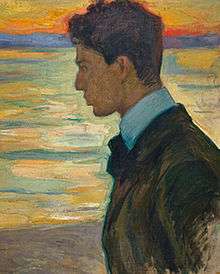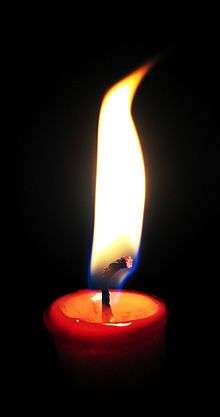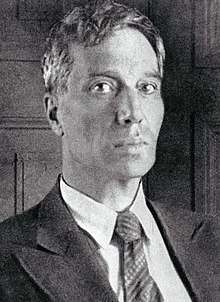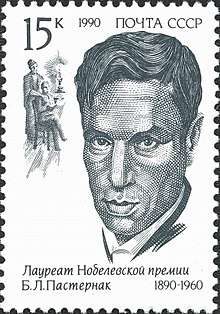Boris Leonidovich Pasternak [Борис Леонидович Пастернак] (10 February 1890 – 30 May 1960) was a Russian poet and writer famous for his 1957 novel Doctor Zhivago. His first book of poems, My Sister, Life (1917), is one of the most influential collections ever published in the Russian language. He was awarded the Nobel Prize for Literature in 1958, an event which enraged the Communist Party of the Soviet Union, which forced him to decline the prize, though his descendants were later to accept it in his name in 1988.
Quotes
- Не спи, не спи, художник,
Не предавайся сну.
Ты – вечности заложник
У времени в плену.
- They don’t ask much of you. They only want you to hate the things you love and to love the things you despise.
- On Soviet bureaucrats, in LIFE magazine (13 June 1960)
- Poetry is a rich, full-bodied whistle, cracked ice crunching in pails, the night that numbs the leaf, the duel of two nightingales, the sweet pea that has run wild, Creation’s tears in shoulder blades.
- LIFE magazine (13 June 1960)
- It is no longer possible for lyric poetry to express the immensity of our experience. Life has grown too cumbersome, too complicated. We have acquired values which are best expressed in prose.
- Interview in Writers at Work, Second Series (1963) edited by George Plimpton.
- Work is the order of the day, just as it was at one time, with our first starts and our best efforts. Do you remember? Therein lies its delight. It brings back the forgotten; one’s stores of energy, seemingly exhausted, come back to life.
- As quoted in The New York Times (1 January 1978)
- What is laid down, ordered, factual is never enough to embrace the whole truth: life always spills over the rim of every cup.
- As quoted in Bridges to Infinity : The Human Side of Mathematics (1983) by Michael Guillen
Doctor Zhivago (1957)

Only individuals seek the truth.
- Gregariousness is always the refuge of mediocrities, whether they swear by Solovyov or Kant or Marx. Only individuals seek the truth.
- I think that if the beast who sleeps in man could be held down by threats — any kind of threat, whether of jail or of retribution after death — then the highest emblem of humanity would be the lion tamer in the circus with his whip, not the prophet who sacrificed himself. But don’t you see, this is just the point — what has for centuries raised man above the beast is not the cudgel but an inward music: the irresistible power of unarmed truth, the powerful attraction of its example. It has always been assumed that the most important things in the Gospels are the ethical maxims and commandments. But for me the most important thing is that Christ speaks in parables taken from life, that He explains the truth in terms of everyday reality. The idea that underlies this is that communion between mortals is immortal, and that the whole of life is symbolic because it is meaningful.
- Book One, Ch. 2 : A Girl from a Different World, § 10, as translated by Max Hayward and Manya Harari (1958)
- Variant translations:
- I think that if the beast dormant in man could be stopped by the threat of, whatever, the lockup or requital beyond the grave, the highest emblem of mankind would be a lion tamer with his whip, and not the preacher who sacrifices himself. But the point is precisely this, that for centuries man has been raised above the animals and borne aloft not by the rod, but by music: the irresistibility of the unarmed truth, the attraction of its example. It has been considered up to now that the most important thing in the Gospels is the moral pronouncements and rules, but for me the main thing is that Christ speaks in parables from daily life, clarifying the truth with the light of everyday things. At the basis of this lies the thought that communion among mortals is immortal and that life is symbolic because it is meaningful.
- Book One, Part 2 : A Girl from a Different World, § 10, as translated by Richard Pevear and Larissa Volokhonsky (2010)
- I think that if the beast who sleeps in man could be held down by threats of any kind, whether of jail or retribution, then the highest emblem of humanity would be the lion tamer, not the prophet who sacrificed himself.... What for centuries raised man above the beast is not the cudgel but the irresistible power of unarmed truth.
- Paraphrase of the 1958 translation, as quoted in The New York Times (1 January 1978)
- A candle burned on the table, a candle burned ... he whispered to himself — the beginning of something confused, formless; he hoped that it would take shape of itself. But nothing more came to him.
- Ch. 3 section 10
- Snow, snow over the whole land
across all boundaries.
The candle burned on the table,
the candle burned.- As translated by Richard McKane (1985)
- И вот оказалось, что только жизнь, похожая на жизнь окружающих и среди нее бесследно тонущая, есть жизнь настоящая, что счастье обособленное не есть счастье...
- And so it turned out that only a life similar to the life of those around us, merging with it without a ripple, is genuine life, and that an unshared happiness is not happiness...
- As quoted in The Reporter, Volume 19, 1958
- The great majority of us are required to live a life of constant duplicity. Your health is bound to be affected if, day after day, you say the opposite of what you feel, if you grovel before what you dislike, and rejoice at what brings you nothing but misfortune. Our nervous system isn't just a fiction, it's part of our physical body, and our souls exists in space and is inside us, like the teeth in the mouth. It can't forever be violated with impunity.
- As quoted in "Boris Pasternak" in I.F. Stone's Weekly (3 November 1958), § "Words Which Apply to Us As Well As Russia"; later in The Best of I.F. Stone (2006), p. 43
- The main misfortune, the root of all evil to come, was loss of the confidence in the value of one's own opinion. People imagined that it was out of date of follow their own moral sense, that they must all sing in chorus, and live by other people's notions, notions that were crammed down everybody's throat.
- As quoted in "Boris Pasternak" in I.F. Stone's Weekly (3 November 1958), § "Words Which Apply to Us As Well As Russia"; later in The Best of I.F. Stone (2006), p. 43
- Мое собственное сердце скрыло бы это от меня, потому что нелюбовь почти как убийство, и я никому не в силах была бы нанести этого удара.
- My own heart would have concealed it from me, for failure to love is almost like murder and I would have been incapable of inflicting such a blow on anyone.
- I love you madly, irrationally, infinitely.
- "How wonderful to be alive," he thought. "But why does it always hurt?"
- If it is so painful to love and to be charged with this electric current, how much more painful must it be to a woman and to be the current, and to inspire love.
Selected Poems (1983)
Nobel Prize
- Like a beast in a pen, I’m cut off
From my friends, freedom, the Sun.
But the hunters are gaining ground;
I’ve nowhere else to run.
- Am I a gangster or a murderer?
Of what crime do I stand
Condemned? I made the whole world weep
At the beauty of my land.
- Even so, one step from my grave,
I believe that cruelty, spite,
The powers of darkness will in time
Be crushed by the spirit of light.
Quotes about Pasternak
- All of us who are more or less heretical in our society are forced to live on its margin, grateful that we are able to speak (at the cost of abnormal exertions) to a small audience.
Pasternak has universal meaning, for he embodies the fight the artist and the seeker after truth must wage everywhere against official dogma and conformist pressures.- I. F. Stone, in "Boris Pasternak" in I.F. Stone's Weekly (3 November 1958), § "Words Which Apply to Us As Well As Russia"; later in The Best of I.F. Stone (2006), p. 43
External links
- 1958 Nobel Prize in Literature
- Pasternak profile at Poets.org
- PBS biography of Pasternak
- Read Pasternak's interview with The Paris Review Summer-Fall 1960 No. 24
- Register of the Pasternak Family Papers at the Hoover Institution Archives
- profile and images at the Pasternak Trust
- pp. 36–39: Pasternak as a student at Marburg University, Germany
- Boris Pasternak poetry
This article is issued from
Wikiquote.
The text is licensed under Creative
Commons - Attribution - Sharealike.
Additional terms may apply for the media files.
